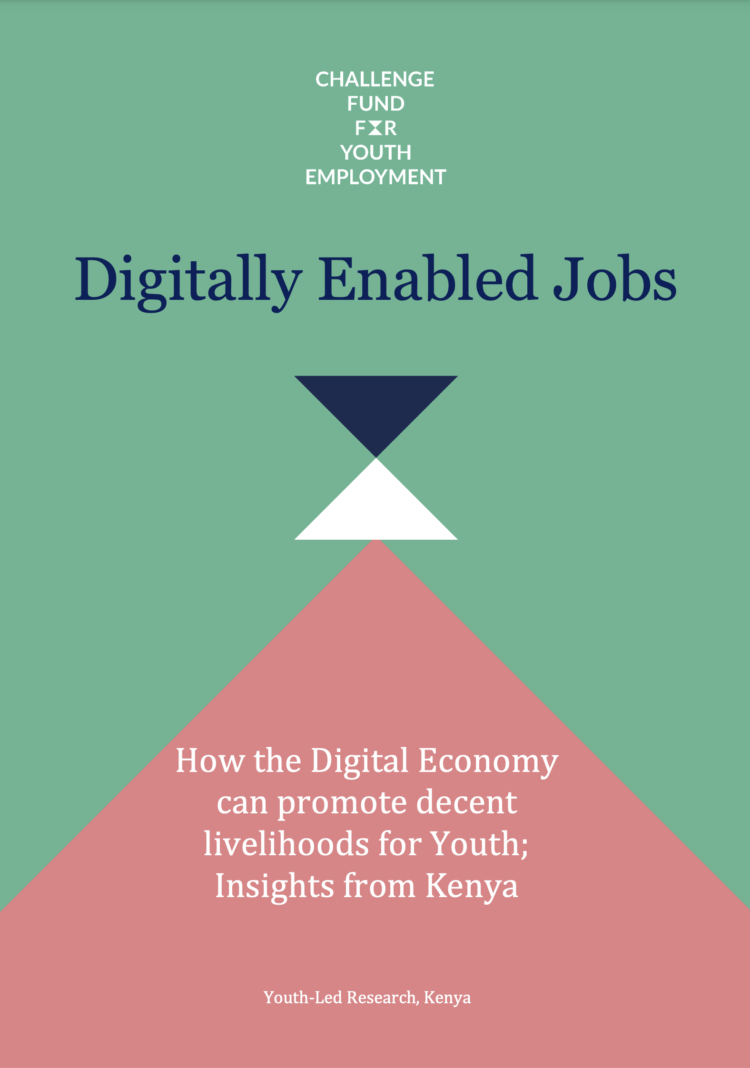How the Digital Economy can promote decent livelihoods for Youth; Insights from Kenya
Executive Summary
This research was conducted to bring the youth perspective into the design of the Jobtech Learning Lab, which aims to understand and improve digitally enabled jobs (DEJ). The research identified key themes that could be used in establishing an adequate measure of their quality and focused on three categories of actors in the Jobtech ecosystem: Service Providers (users, freelancers, technical workers, retailers); Intermediaries (start-ups/platforms owners); and Clients (those who benefit from the services offered).
The research found differences between urban and rural youth in their awareness of DEJ: 9/10 of urban youth had a good understanding of DEJ, compared to 5/10 of rural-based. Overall, approximately 60% of the respondents displayed a good understanding of the concept of DEJ and the use of digital platforms for offline work. Non-availability of resources such as laptops, internet, data bundles etc were mentioned as some of the biggest challenges for youth accessing digitally enabled jobs. The Internet remains crucial in DEJ and it is mostly urban youth who can access opportunities, compared to rural.
Findings
The findings outline an understanding of the ‘decency’ elements of DEJ; with pay rates, pay waiting time, payment channels, choice and flexibility, opportunities for skills growth, and legitimacy of jobs ranked as the topmost aspects that attract youth to DEJ. The research found that urban youth prefer flexible ways of working to conventional full-time working hours, unlike their rural peers who prefer conventional working hours. 80% of youth respondents mentioned that they are only able to access entry-level jobs due to a lack of skills and experience to unlock more advanced skills. Young mothers find DEJ favourable to them, in securing their livelihoods and allowing them to still provide childcare duties.
The research also found out what risks DEJ poses to youth. Approximately 30% of respondents highlighted that they are subjected to exploitation in DEJ, in part because of the pay, as well as scams, where some platforms ask for registration fees, yet no tasks are given. Unclear job descriptions, where youth are subjected to tasks that are not only outside the job description but also unethical. There are also significant barriers due to perceived youth capabilities, 80% of youth are only able to access entry-level jobs due to a lack of formal skills and experience.
Regarding the future of work, youth believe technology will be key and disrupt ways of working, types of jobs, and experience of decency. Youth are keen on building their knowledge of technology to remain relevant in the advancing tech world. 70% of respondents felt prepared for the future of work, and that they have attained some skills that enhance their confidence, are proactive and continually upskill.
Recommendations have been generated and focus on improving the quality, access, and value of DEJ. They are targeted to different audiences to facilitate action and effectiveness.
